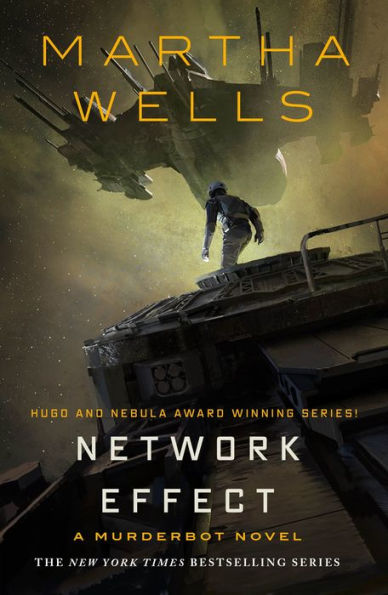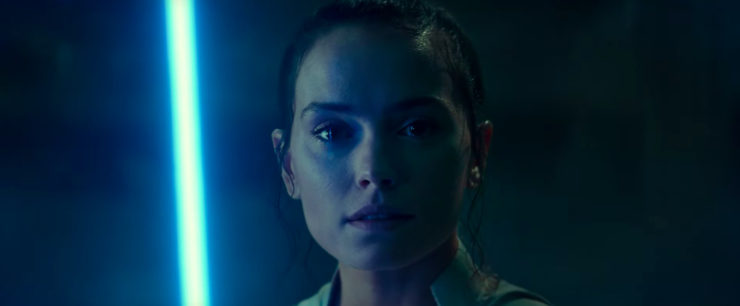When it comes to mega-myths and long-standing pop culture phenomenons, endings are one of the most impossible things to get right. The Rise of Skywalker already had a tough act to beat by following The Last Jedi—easily the most narratively and thematically complex film that Star Wars has ever churned out. But it’s doubtful that Episode IX ever intended to outdo its predecessor, and what we have for a coda has much more in common with an oft-maligned chapter of the Skywalker Saga: Return of the Jedi.
For all the good and bad that brings.
[Non-spoiler review]
Machinations are grandiose and sometimes utterly ridiculous in Episode IX. It’s easy to grouse over how unrealistic many of those plot twists are, but this is Star Wars we’re talking about—the film franchise that has always built its conflicts on bigger ways to blow stuff up and bigger bads to fell in exceedingly dramatic ways, for exceedingly dramatic reasons. While it may be a bug rather than a feature, it’s consistent. If The Rise of Skywalker disappoints you, it’s likely to be for the silliness of those grander schemes, or for the fact that it doesn’t use much of The Last Jedi as groundwork for its conclusion (which is a genuine shame at points). A similar structure holds true for Return of the Jedi, and in that regard, The Rise of Skywalker has many of its same strengths; namely, it’s genuinely fun, at times achingly eager, and prioritizes character development and emotional turmoil.
The third Star Wars trilogy has been a sleeker exercise by far than the other two, which means that even when it’s a little sappy and overwrought, a lot of those moments work by the sheer will of its talent. Seeing the bonds between Rey (Daisy Ridley), Finn (John Boyega), and Poe (Oscar Isaac) grow as they navigate all the terror the galaxy throws at them is beautiful to behold. All the people who hold the Resistance together, who come to its aid, from familiar and beloved faces like Rose Tico (Kelly Marie Tran) and Lando Calrissian (Billy Dee Williams) to newcomers like Jannah (Naomi Ackie), make the movie brighter and power the story via endless charisma and knowhow. It’s sad to know that this is likely the last we’ll see of any of them on screen, after growing so instantly attached to them all.
There is an absence in this film that cannot be understated. The loss of Carrie Fisher after The Last Jedi finished production meant that all of her scenes in The Rise of Skywalker were cobbled together from unused footage in The Force Awakens. It’s truly impressive how well her presence works and how painstakingly her scenes have been knit into the narrative, but there are clear beats that are missing without her, and it’s easy to tell how much space she was originally going to take up in the story had she not passed away. It’s difficult not to miss her, even when you’re staring right at her, not to mourn the journey we all deserved to see for our beloved General.
Her final bow is bittersweet, but there are many others that don’t hurt quite so badly. Listening to John Williams’s score pay him back in a million little ways as he ties together decades worth of symphonic storytelling is an utter joy to bear witness to. He has a cameo in the film to watch out for, a fitting glimpse of a person who is perhaps more responsible for Star Wars than anyone who ever worked on it, creator George Lucas included. The soundtrack of Star Wars is Star Wars, and nowhere is it more evident than in his very last installment.
Buy the Book


Network Effect
The Rise of Skywalker isn’t big on explaining things, so if you’re expecting a lot of intimate details on how major plots points come to be, there won’t be much to save you. It’s also fascinating to see how much of the film relies on knowledge from the prequels and the television series’ that have materialized thus far, from Clone Wars to Rebels to The Mandalorian. It doesn’t mean that the audience will be totally at sea without reference points, but it absolutely enriches the viewing experience (especially when it comes to Sith history and character cameos). It’s likely that this was always going to be a problem for Rise of Skywalker, as it has the unenviable job of tying up the majority of a story that Star Wars has been telling over the past forty-odd years. Even if we never see specific references to events of the Clone Wars or the struggles of the Mandalorian people, all of these elements still have to work in concert. Some of those places where the film pulls those decades of history together (both in universe and out) are flat-out gorgeous.
The plot starts us off with a jaunty scavenger hunt vibe that serves the film well before the messier arcs take over and everything gets complicated. There is also one major reversal from The Last Jedi that feels a lot like cheating on writer-director JJ Abrams’s part, though it’s not surprising to see him assert his original vision for the trilogy over other avenues that Rian Johnson’s Episode VIII tried to explore. To his credit, the one place the film never skimps is on its characters, the only reason most of us were charmed into caring about the third Star Wars trilogy in the first place. We see Rey, Poe, and (really, especially) Finn figure out who they want to be, and how the coming events will shape their futures. The same is true for Kylo Ren (Adam Driver), who is finally given some nuance and history to play with, and he makes use of every second he’s given on screen.
There are themes at work here that feel particularly timely and relevant to the era in which we find ourselves. Among those are the acknowledgement that fascism and evil can only flourish by making us feel isolated from one another, making us forget that we have friends, networks, supports in place to keep us from faltering. But perhaps more essential is a piece of wisdom given to us by a trusted veteran—that no one knows what they’re doing. Good work isn’t about having battle plans and thorough organization and going in knowing exactly how you’re going to win the day. And all the people who seem like they’ve got it together? They don’t. Essentially, Imposter Syndrome is real, even for leaders and great hopes of the galaxy. The only way you manage is by letting it go, and moving forward.
Imperfect as it is, The Rise of Skywalker often feels like being wrapped up in a warm blanket. It’s not a risky venture, but it has enough heart to power a galaxy. And that makes for a fitting ending in my book.
[Please note: the comments section may contain spoilers for The Rise of Skywalker, so proceed with caution!]
Emmet Asher-Perrin loves Return of the Jedi, for the record. In case you were wondering where they landed on this one. You can bug him on Twitter, and read more of her work here and elsewhere.










